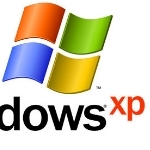
By Bill Pytlovany
Targeted Cyber Threats Aren’t Just Attacking Iran
This week the news has been focusing on the computer threats called Stuxnet and Flame. Both have actually been around a few years but were not a problem to most Windows or Mac users. These threats have gotten attention lately because of a trend towards “targeted” computer infiltrations.
Stuxnet was designed to “worm” its way on to Windows computers specifically in Iran and then target specific computer devices which may be used to process the nuclear fuel, Uranium. International observers indicate that Stuxnet was likely responsible for the eventual destruction of 10% of the centrifuge machines at Irans Natanz nuclear facility. Flame is a newer, larger version but may be more detectable because it seems overly ambiguous.
Many cyber researchers, myself included, feel that Stuxnet and other worms targeting Iran were developed in Israel and supported by the U.S. Department of Homeland Security. By reverse engineering Stuxnet subtle clues backing this theory can be found encrypted in the code. If the developers wanted to blame our government these clues would have been more obvious.
On June 1st, the New York Times reported they had additional proof of our involvement. They claim a cyber sabotage program had been started under the George W Bush administration. During his first months as president Barak Obama ordered the expansion of the program, coded-named “Olympic Games”. Instead of writing more about Stuxnet and Flame like everyone else, I think it’s more important to focus on targeted attacks in general.
Targeted attacks aren’t just being used against countries who are part of the axis of evil. Businesses are being targeted by competitors, candidates running for office are targeted by their opposition, celebrities targeted by reporters and now we’re seeing an increase in targeted attacks on individuals who are tricked into installing Rogueware also called Exhortionware or Ransomware.
This post is excerpted with Bill’s permission from his blog




